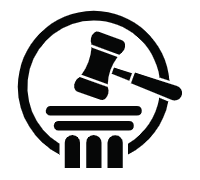
With the shocking news revealed earlier this week that OpenAI has decided to fire their CEO, Sam Altman, shareholders are now considering seeking legal recourse due to the chain reaction of employees leaving the company in droves. OpenAI is perhaps the biggest startup in the generative AI sector so it is no wonder why shareholders would be concerned with the decision to part ways with Altman. The board does, of course, have legal duties to the company. For example, the board must exercise care in their decision making and they also must avoid self dealing. However, the board does have significant leeway in their decision making when it comes to business. This is otherwise known as the “business judgment rule.” This rule can make it very difficult for shareholders to be able to successfully sue a board of a company for their decisions. The business judgment rule is a presumption in favor of the board. Under this standard, a court will uphold the decisions of a director as long as they are made (1) in good faith, (2) with the care that a reasonably prudent person would use, and (3) with the reasonable belief that the director is acting in the best interests of the corporation.1 It is believed that the board may have dismissed Altman because it was feared that he was carelessly putting products out to market that could cause disruption to society and pose potential dangers to humanity. If the board can prove this to be true, then it could be said that they made the decision in good faith, with the care that a reasonably prudent person would use, and with the reasonable belief that it was in the best interests of OpenAI. What further complicates the situation is the fact that OpenAI was originally a non-profit. The mission statement of the non-profit is to benefit “humanity, not OpenAI investors.” This would give investors less leverage in a lawsuit attacking. However, in 2019, Altman created a for profit subsidiary of OpenAI. This could open up an avenue for legal recourse against the board because a for profit company is one that is created to serve its investors best interests. Further, OpenAI’s corporate structure as a limited liability company (LLC) makes it even more complicated for the shareholders legal action against the board. LLC’s insulate board members from lawsuits because they prevent board members from being sued personally for debts and activities of the company. The corporate veil of the LLC gives the members of the board protection from personal liability. Certainly, it will be interesting to see if shareholders choose to pursue legal action against OpenAI’s board. If they do, it will seemingly not be an easy lawsuit to win. As more details come to light within the next few days we will have updates on this developing situation.
- Lii, Business Judgment Rule, US Law https://www.law.cornell.edu/wex/business_judgment_rule. ↩︎
